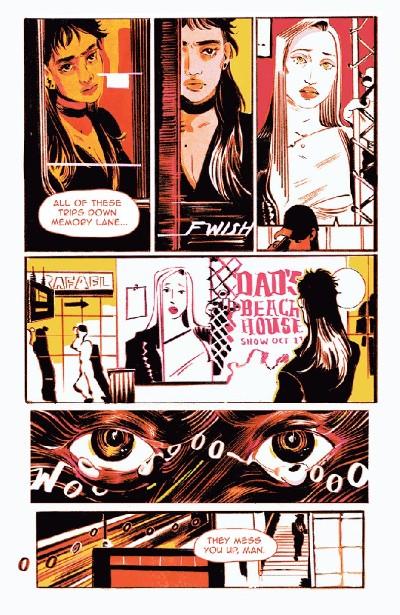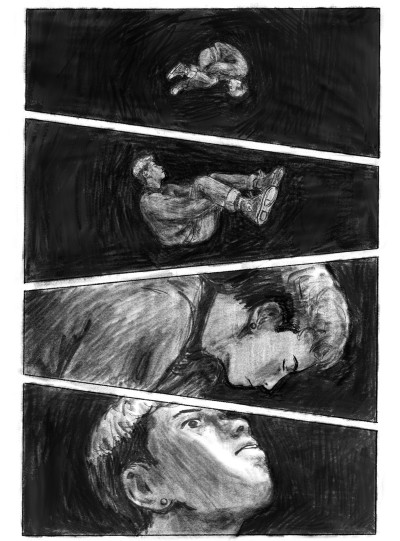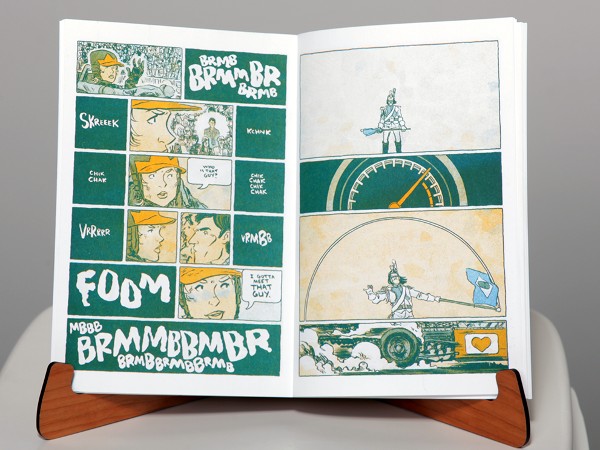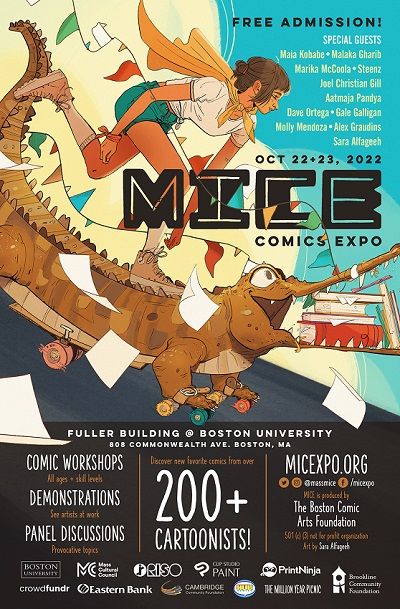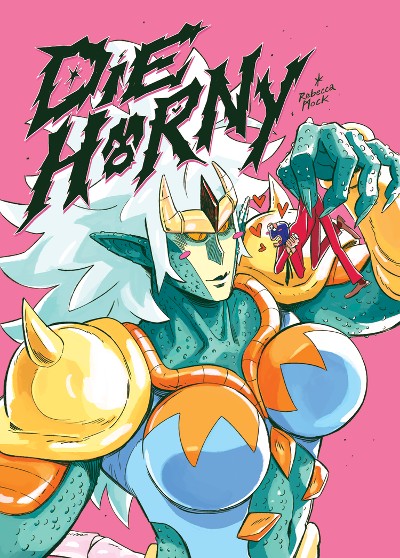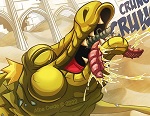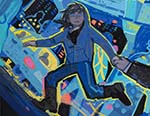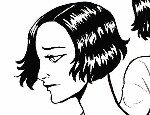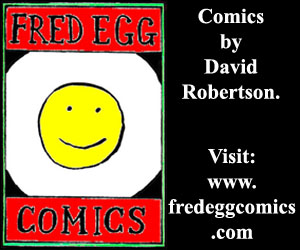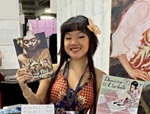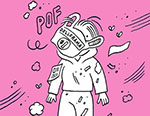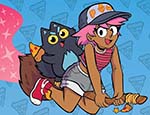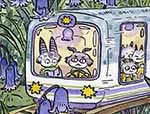
BROKEN FRONTIER AT 20! Micropublishers who bring exciting new talents to a broader readership and appreciate just how diverse approaches to the comics page have a parallel mission to ours at BF. One of the most exciting newer outfits on the scene is Bulgilhan Press who we’ve featured on the site a couple of times in recent months and doubtless will do so many times in the future. As part of ‘Broken Frontier at 20’ we caught up with Bulgilhan Press’s Zach Clemente to talk about its origins, MICE, and the logistics of comics publishing…
ANDY OLIVER: How did Bulgilhan Press come into being? How would you describe your ethos as a publisher and the type of work you focus on?
ZACH CLEMENTE: There was a point where I was hanging out with friends some evening of TCAF in 2018 where it struck me. I was musing around about the things I’ve done and no longer did at the time in comics such as interviews and script-writing, as well as the things I was still doing such as festival organizing. I realized I had hit a point where I needed to throw myself into a new, specific, endeavor that would hold my focus. My two ideas were A) start small press publisher or B) produce a really well-made video interview series. I was daunted by the idea of shipping camera equipment around the world and having to train people on how to use it, I decided that publishing would be easier.
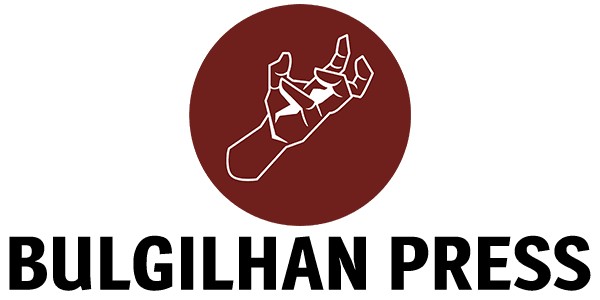
My published “goal” for Bulgilhan is to publish self-indulgent work; provide a support structure for my artists to be the most them they could be in that moment. Appropriately, I view this goal as quite selfish. I want to give artists I adore enough of an excuse to make a comic I think would rule and would love to read. Obviously, everyone else should read them too. “Self-indulgent” is a pretty broad idea, which is intentional and reflects the sorts of books I want to help enter the world. Originally, I had called Bulgilhan a home for experimental comics but soon realized that most pitches I got tried to find one protruding aspect of the project and hang the idea of “experimental” to it and was dissatisfied. Once I re-framed it as self-indulgent, I got a lot happier with the ambiguity and starting seeing more pitches that I found interesting.
Molly Mendoza’s ‘Stray’ (reviewed here at BF)
AO: There’s never a time when things aren’t tough for small presses but these are particularly difficult times for all publishers. How have you faced those issues since you started? Have there been any unexpected challenges to adapt to as you’ve found your publishing feet?
CLEMENTE: Well, I announced Bulgilhan in 2019 with the intention of the first books to come out in 2020, which certainly didn’t go as planned. It’s hard to say what’s uniquely difficult because I don’t really have a comparison. Bulgilhan’s first two books, Threshold and Faster were published mid-pandemic where any comic convention or festival foolish enough to run in person wasn’t worth exhibiting at so if anything, it’s only gotten easier with comics events coming back.
The big issues/stumbling blocks, as always, are logistics. How do I get my books in front of potential readers? How can I get the books funded through means that aren’t Kickstarter (since they continue their ill-advised dalliance into crypto chicanery)? I’ve had to learn so much about printing and it’s clear that I’ve barely chipped away at the mountain of knowledge and experience required to feel confident in the process. That said, I’m grateful of the approach that I took when starting Bulgilhan. It’s not designed to ever make me money. I have no intention to draw a fee or salary from it. It exists to perpetually publish cool comics. The only real pressure I feel to keep at it is my love of comics and the promise I’ve made to my artists. If things end up going a little slower or need to pause for a spell – as long as I’ve communicated with myself and my artists, it’s cool.
Anke Gladnick’s ‘Threshold’ (reviewed here at BF)
AO: The comics you’ve published so far have all been very diverse in terms of their approach to the form but what all of them have in common is that they really embrace the possibilities of the language of comics. How do you approach the curation process for Bulgilhan Press, and will you focus for the foreseeable future be on shorter narrative projects?
CLEMENTE: I love hearing about the connective tissue people find between the books I’ve published. Often I don’t fully notice the commonalities or I have a different way of describing them. The curatorial process for Bulgilhan is both something I relish as well as something I dread. I don’t enjoy disappointing people, but I know what my limits are. Even if I get the press fine-tuned, it’s likely that I’ll only be able to publish a handful of books per year which means the vast majority of submissions will be ones that I pass up. I don’t want to misrepresent, though, I choose the books carefully and it’s process that’s mine alone.
As the one who will be telling the world how great a comic is, I need to be in love with it. If I’m not, I have no business publishing it. As for the length of the books I publish, I’m sure that’ll change slowly over time. I don’t think you’ll see 300-page epics from Bulgilhan any time soon, but 100+ page books are on the horizon and I welcome them eagerly. However, I’m very intent on primarily publishing singular books, not necessarily ongoing series.
Jesse Lonergan’s ‘Faster’
AO: You’re also the Outreach Co-Director for the Massachusetts Independent Comics Expo. What does your role there entail, and how important do you think events like MICE are in fostering a sense of indie/small press comics community?
CLEMENTE: I’ve been working on MICE since 2015. I volunteered the year previous and they asked if I was interested in joining the organizational staff soon afterwards. The title itself is quite new as we’ve been working to properly frame our roles to make sure that we’re not overdoing it too much but also to allow us to more easily bring more people in and help. When we have clearer delineations of labor, it shows us where specific gaps lay. We’re still getting used to it so my role is still fairly amorphous and I, like most of us, tend to wear a lot of hats and get CC’d on a lot of emails.
Throughout the year, myself and other organizers will start putting together the scaffolding of MICE; reaching out to publishers with wishlists for guests, confirming venue dates, etc. When we announce the show date, we typically also announce the exhibitor application period – which is a fully-curated process. Once we have our guests exhibitors, we start planning panels and workshops that match well to the cartoonists we’ll be welcoming to Boston in the fall. On the ground of the festival, we do just about everything from moderating panel, setting up table, coordinating volunteers, picking up guests from the airport, loading in vendor boxes, and so much more. To give you an idea, this past MICE event, I walked 24 miles from Friday to Sunday.
Events like MICE are absolutely crucial for the comics community. They provide not just a tangible space for comics makers and comics readers to intermingle and celebrate comics, but help cultivate and multiply the natural force of togetherness and belonging. We need spaces to be together and learn from each other in order to thrive. On a fundamental level, sharing time and space with a peer will impact you – and you doing the same for others will impact them. For our creative communities to grow, we need them to be able to move past survival, which is the state we’re kept in when forced to depend on privately-owned corporate transactional platforms which will eschew most if not all moral decency to increase profit. For individual artists, these platforms can help them but collectively they’re sucking us dry. Spaces created by community members, such as festivals, are places to reclaim the craft of making comics and love comics earnestly.
AO: We all know the more negative aspects of the comics scene and the challenges that creators face but given that we’re celebrating 20 years of Broken Frontier in this series of interviews we’re asking everyone a variation of this question. Over the last decade or so what were some of the key positive developments within comics as a scene/medium/industry that you think are worth celebrating?
CLEMENTE: I’d have to say accessibility. If it’s easier to learn about comics and easier to learn how to make comics, then more people will make them. When we talk how there are more spaces for black and brown comics makers, queer comics makers, disabled comics makers – barriers had to be torn down to make that possible. With more voices in the scene able to make comics, the more the medium will be challenged and subsequently grow, and with that, the industry (or the slap-dash, teetering, amalgam industries we call comics) will be forced to adapt.
Slowly but surely comics as a medium is becoming more popular – a process which comes with some pain, certainly, but also many possible boons as well. Each year there are more graduate programs in visual narrative (academic for “comics”) as well as the study of comics and while I freely admit, higher education has many caveats when it comes to the arts, it’s a testament that more people are taking comics seriously. Not to say that we should exclusively be making serious comics, perish the thought.
Visit the Bulgilhan Press online store here
Interview by Andy Oliver
Top BF logo by Joe Stone





